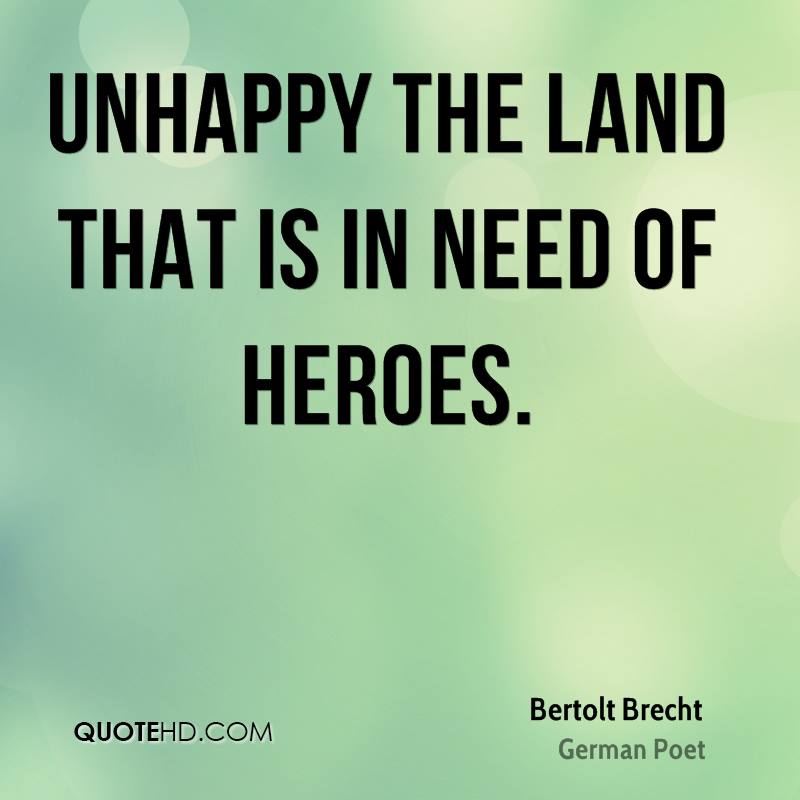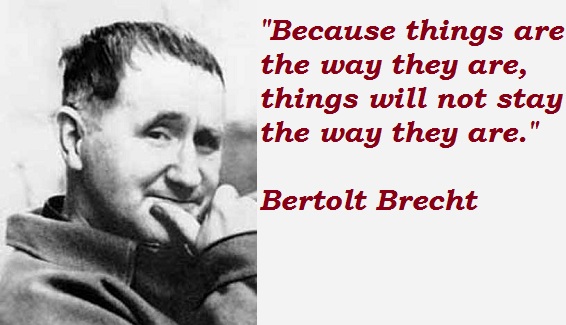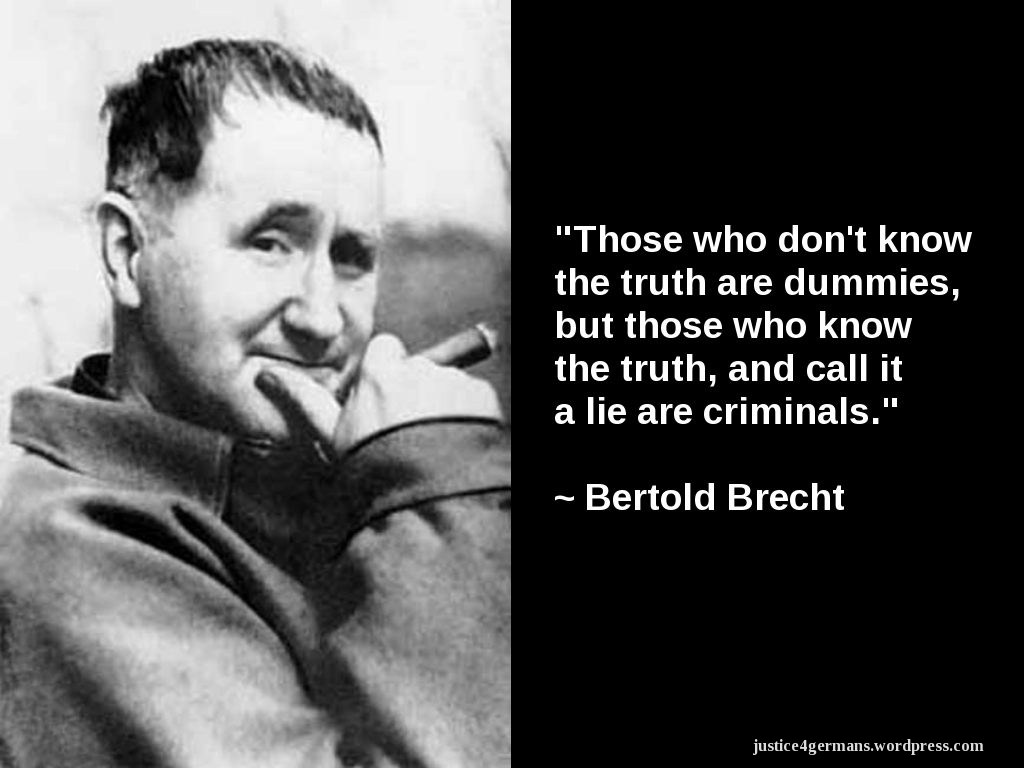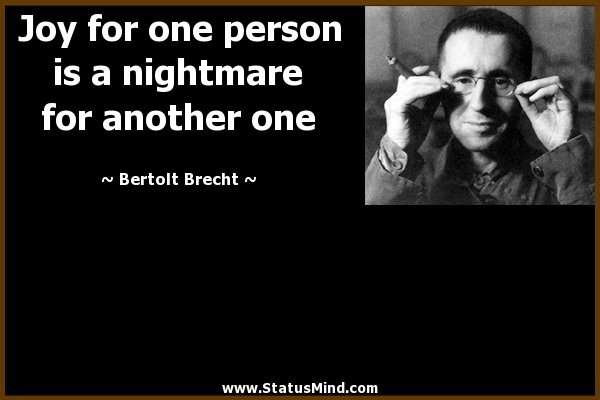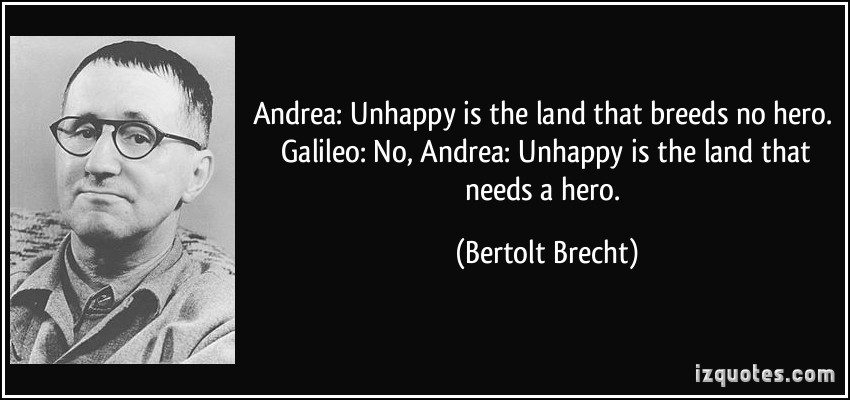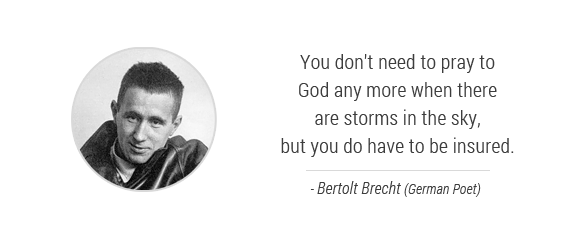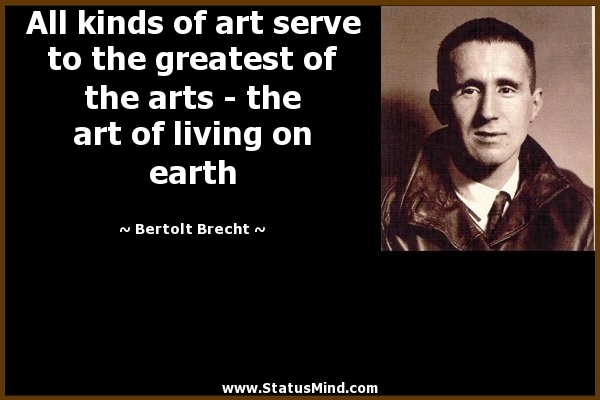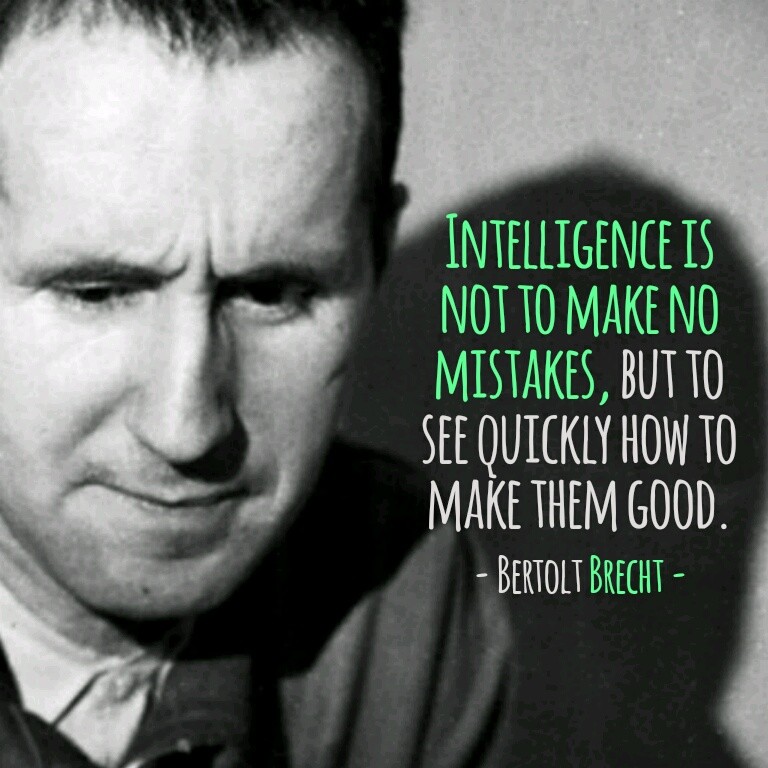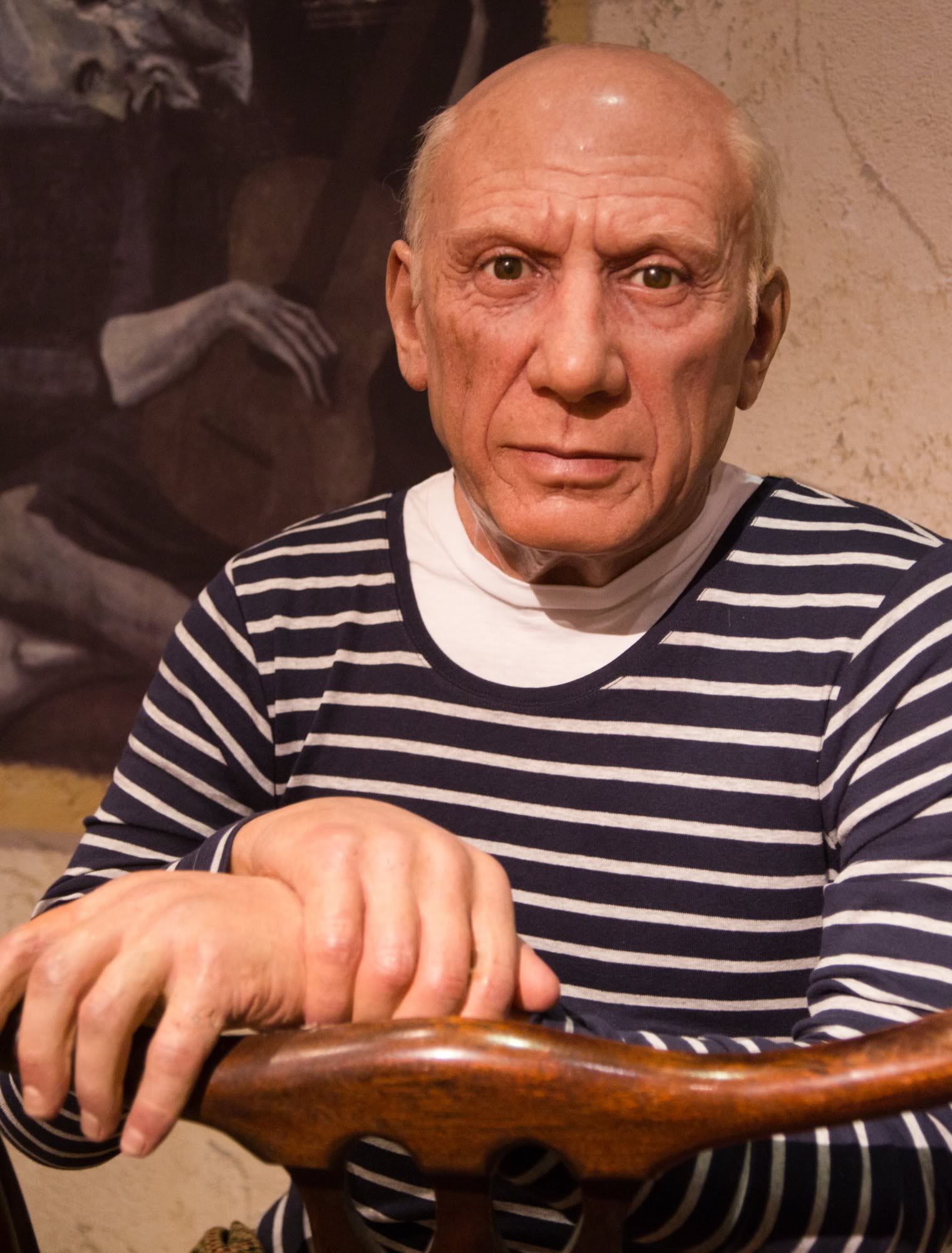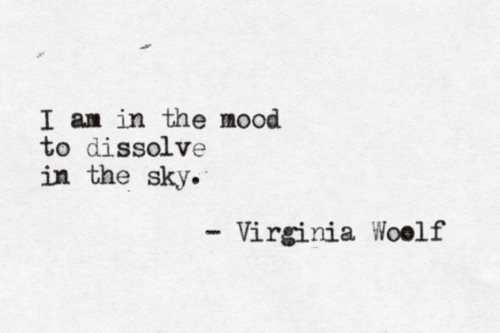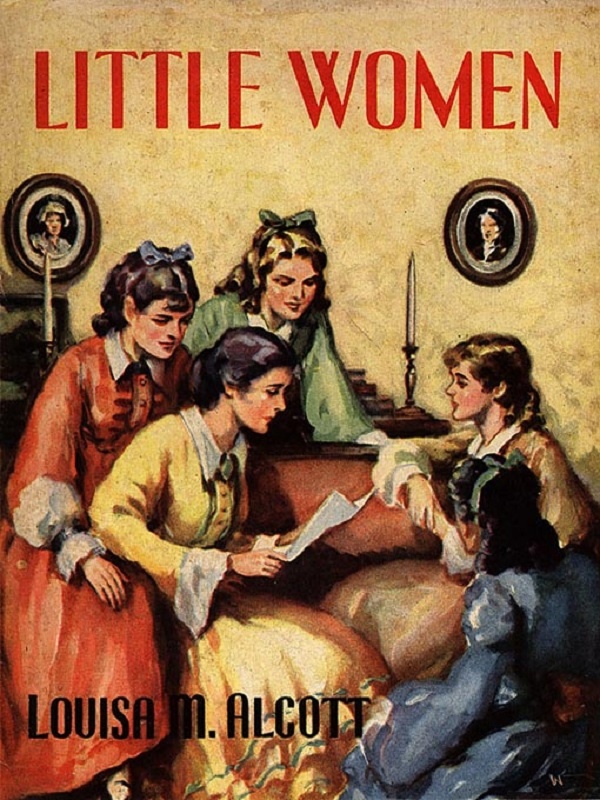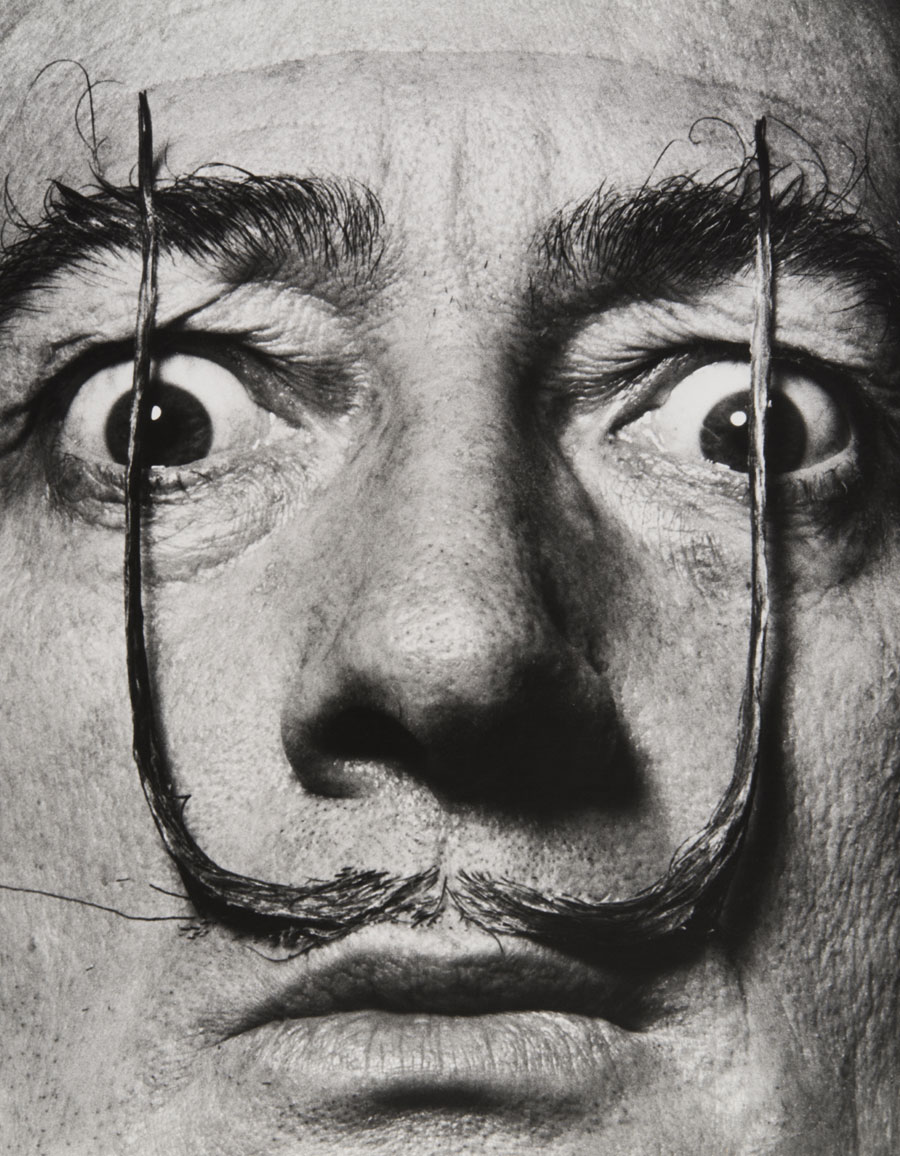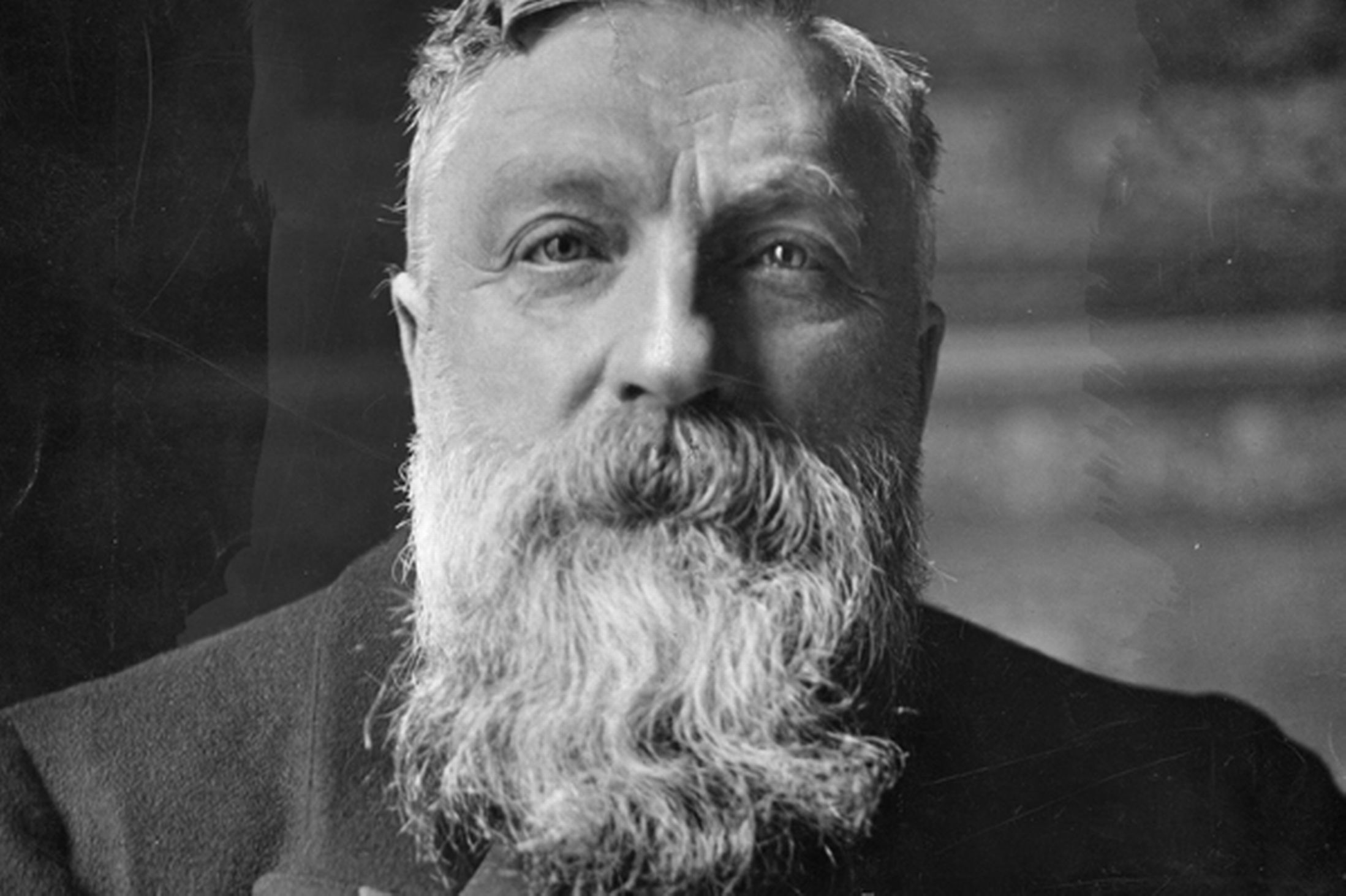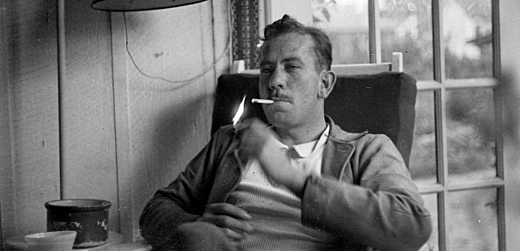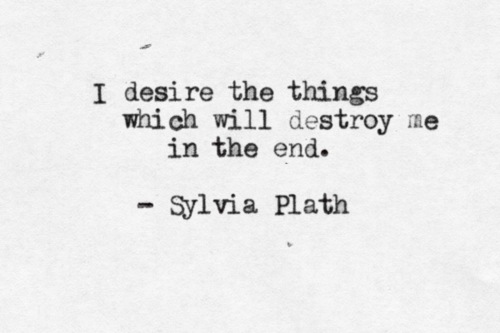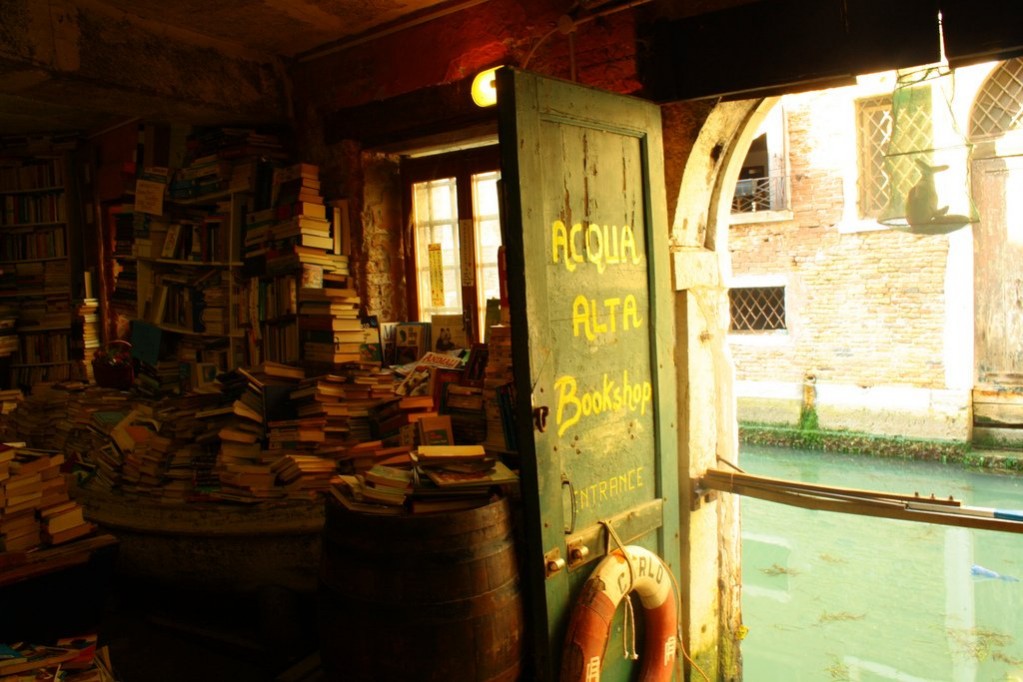Bertolt Brecht (10 February 1898 – 14 August 1956)
Bertolt Brecht is best known for his plays and poems,
in which he embraced anti-bourgeois themes and being forced from his native Germany.
Bertolt Brecht was born February 10, 1898 in Germany, he began writing plays while working at an Army hospital. Brecht’s work fit nicely with the Dadaist and Marxist movement of the time. The increased dissatisfaction with society after World War I fit Brecht’s anti-bourgeois writing. He fled Nazi Germany and settled in the US, until setting in Berlin following World War II.
Brecht died on 14 August 1956 of a heart attack at the age of 58. He is buried in the Dorotheenstädtischer cemetery on Chausseestraße in the Mitte neighbourhood of Berlin, overlooked by the residence he shared with Helene Weigel.
1)
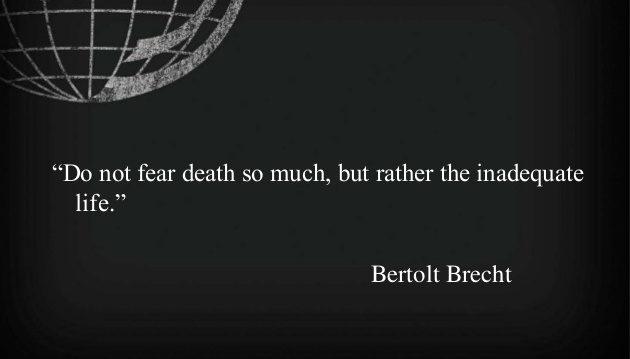
2)
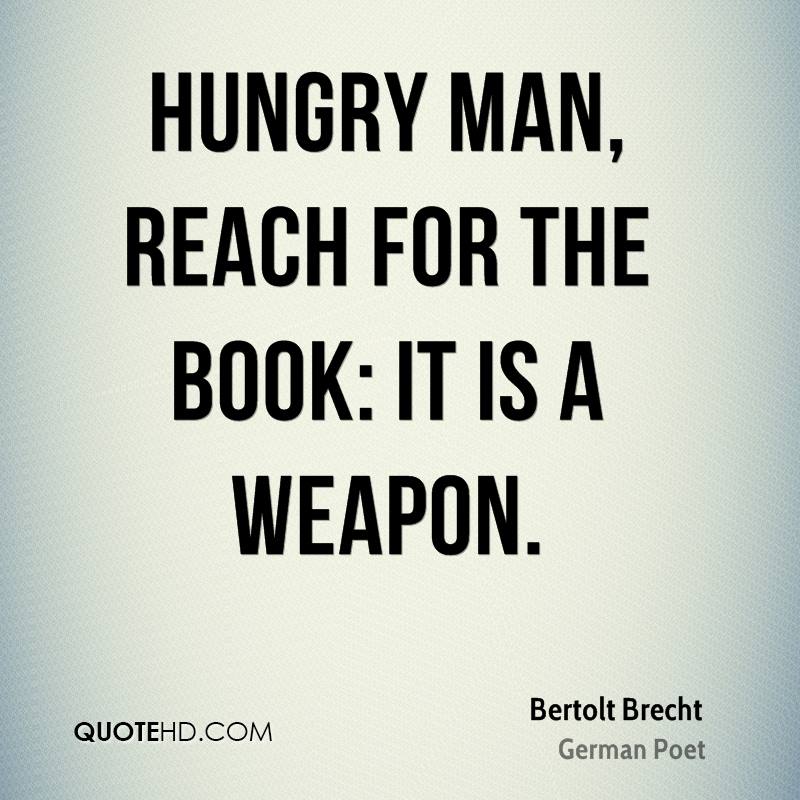
3)
4)
5)
6)
7)
8)
9)
10)
11)
Works
Fiction
- Stories of Mr. Keuner (Geschichten vom Herrn Keuner (de))
- Threepenny Novel (Dreigroschenroman, 1934)
- The Business Affairs of Mr. Julius Caesar (Die Geschäfte des Herrn Julius Caesar (de), 1937–39, unfinished, published 1957)
Plays
Entries show: English-language translation of title (German-language title) [year written] / [year first produced]
- Baal 1918/1923
- Drums in the Night (Trommeln in der Nacht) 1918–20/1922
- The Beggar (Der Bettler oder Der tote Hund) 1919/?
- A Respectable Wedding (Die Kleinbürgerhochzeit) 1919/1926
- Driving Out a Devil (Er treibt einen Teufel aus) 1919/?
- Lux in Tenebris 1919/?
- The Catch (Der Fischzug) 1919?/?
- Mysteries of a Barbershop (Mysterien eines Friseursalons) (screenplay) 1923
- In the Jungle of Cities (Im Dickicht der Städte) 1921–24/1923
- The Life of Edward II of England (Leben Eduards des Zweiten von England) 1924/1924
- Downfall of the Egotist Johann Fatzer (Der Untergang des Egoisten Johnann Fatzer) (fragments) 1926–30/1974
- Man Equals Man also A Man’s A Man (Mann ist Mann) 1924–26/1926
- The Elephant Calf (Das Elefantenkalb) 1924–26/1926
- Little Mahagonny (Mahagonny-Songspiel) 1927/1927
- The Threepenny Opera (Die Dreigroschenoper) 1928/1928
- The Flight across the Ocean (Der Ozeanflug); originallyLindbergh’s Flight (Lindberghflug) 1928–29/1929
- The Baden-Baden Lesson on Consent (Badener Lehrstück vom Einverständnis) 1929/1929
- Happy End (Happy End) 1929/1929
- The Rise and Fall of the City of Mahagonny (Aufstieg und Fall der Stadt Mahagonny) 1927–29/1930
- He Said Yes / He Said No (Der Jasager; Der Neinsager) 1929–30/1930–?
- The Decision/The Measures Taken (Die Maßnahme) 1930/1930
- Saint Joan of the Stockyards (Die heilige Johanna der Schlachthöfe) 1929–31/1959
- The Exception and the Rule (Die Ausnahme und die Regel) 1930/1938
- The Mother (Die Mutter) 1930–31/1932
- Kuhle Wampe (screenplay, with Ernst Ottwalt) 1931/1932
- The Seven Deadly Sins (Die sieben Todsünden der Kleinbürger) 1933/1933
- Round Heads and Pointed Heads (Die Rundköpfe und die Spitzköpfe) 1931–34/1936
- The Horatians and the Curiatians (Die Horatier und die Kuriatier) 1933–34/1958
- Fear and Misery of the Third Reich (Furcht und Elend des Dritten Reiches) 1935–38/1938
- Señora Carrar’s Rifles (Die Gewehre der Frau Carrar) 1937/1937
- Life of Galileo (Leben des Galilei) 1937–39/1943
- How Much Is Your Iron? (Was kostet das Eisen?) 1939/1939
- Dansen (Dansen) 1939/?
- Mother Courage and Her Children (Mutter Courage und ihre Kinder) 1938–39/1941
- The Trial of Lucullus (Das Verhör des Lukullus) 1938–39/1940
- The Judith of Shimoda (Die Judith von Shimoda) 1940
- Mr Puntila and his Man Matti (Herr Puntila und sein Knecht Matti) 1940/1948
- The Good Person of Szechwan (Der gute Mensch von Sezuan) 1939–42/1943
- The Resistible Rise of Arturo Ui (Der aufhaltsame Aufstieg des Arturo Ui) 1941/1958
- Hangmen Also Die! (screenplay) 1942/1943
- The Visions of Simone Machard (Die Gesichte der Simone Machard ) 1942–43/1957
- The Duchess of Malfi 1943/1943
- Schweik in the Second World War (Schweyk im Zweiten Weltkrieg) 1941–43/1957
- The Caucasian Chalk Circle (Der kaukasische Kreidekreis) 1943–45/1948
- Antigone (Die Antigone des Sophokles) 1947/1948
- The Days of the Commune (Die Tage der Commune) 1948–49/1956
- The Tutor (Der Hofmeister) 1950/1950
- The Condemnation of Lucullus (Die Verurteilung des Lukullus) 1938–39/1951
- Report from Herrnburg (Herrnburger Bericht) 1951/1951
- Coriolanus (Coriolan) 1951–53/1962
- The Trial of Joan of Arc of Proven, 1431 (Der Prozess der Jeanne D’Arc zu Rouen, 1431) 1952/1952
- Turandot (Turandot oder Der Kongreß der Weißwäscher) 1953–54/1969
- Don Juan (Don Juan) 1952/1954
- Trumpets and Drums (Pauken und Trompeten) 1955/1955
Theoretical works
- The Modern Theatre Is the Epic Theatre (1930)
- The Threepenny Lawsuit (Der Dreigroschenprozess) (written 1931; published 1932)
- The Book of Changes (fragment also known as Me-Ti; written 1935–1939)
- The Street Scene (written 1938; published 1950)
- The Popular and the Realistic (written 1938; published 1958)
- Short Description of a New Technique of Acting which Produces an Alienation Effect (written 1940; published 1951)
- A Short Organum for the Theatre (“Kleines Organon für das Theater”, written 1948; published 1949)
- The Messingkauf Dialogues (Dialogue aus dem Messingkauf, published 1963)
Poetry
Brecht wrote hundreds of poems throughout his life. He began writing poetry as a young boy, and his first poems were published in 1914. His poetry was influenced by folk-ballads, French chansons, and the poetry of Rimbaud and Villon.
Some of Brecht’s poems
- 1940
- A Bad Time for Poetry
- Alabama Song
- Children’s Crusade
- Children’s Hymn
- Contemplating Hell
- From a German War Primer
- Germany
- Honored Murderer of the People
- How Fortunate the Man with None
- Hymn to Communism
- I Never Loved You More
- I want to Go with the One I Love
- I’m Not Saying Anything Against Alexander
- In Praise of Illegal Work
- In Praise of the Work of the Party
- Mack the Knife
- My Young Son Asks Me
- Not What Was Meant
- O Germany, Pale Mother!
- On Reading a Recent Greek Poet
- On the Critical Attitude
- Parting
- Questions from a Worker Who Reads
- Radio Poem
- Reminiscence of Marie A.
- Send Me a Leaf
- Solidarity Song
- The Book Burning (The Burning of the Books)
- The Exile of the Poets
- The Invincible Inscription
- The Mask of Evil
- The Sixteen-Year-Old Seamstress Emma Ries before the Magistrate
- The Solution
- To Be Read in the Morning and at Night
- To Posterity
- To the Students and Workers of the Peasants’ Faculty
- To Those Born After
- United Front Song
- War Has Been Given a Bad Name
- What Has Happened?


